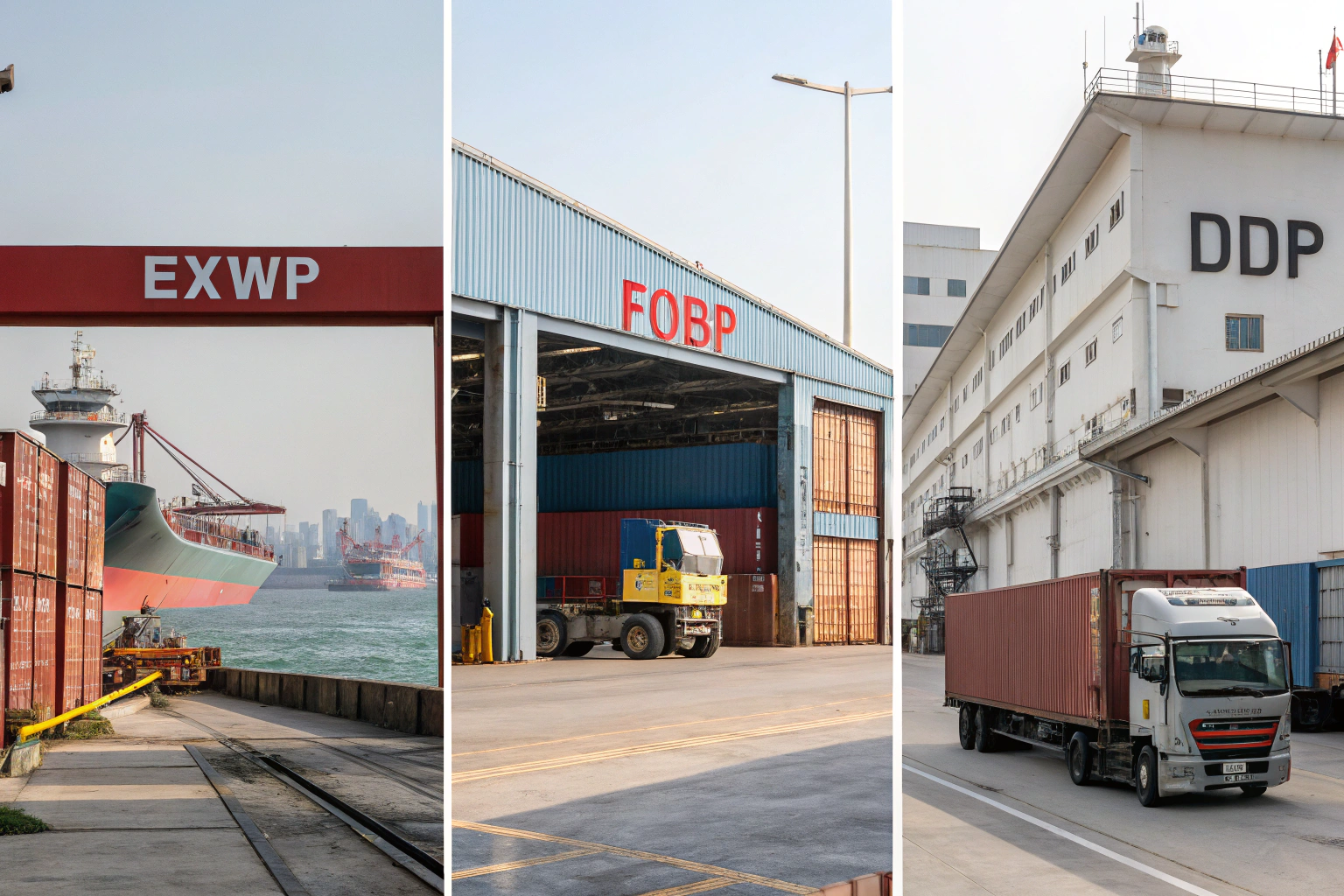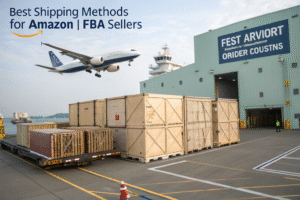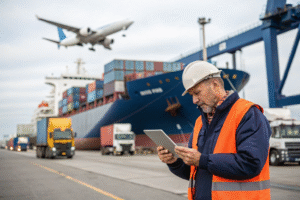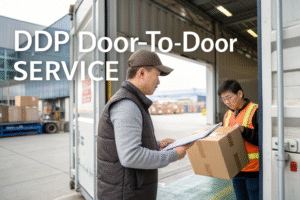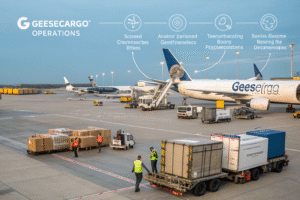In today’s freight market, the Incoterm you choose for your China-to-US shipments can either protect your margins or expose your supply chain to hidden risks. With rates and regulations constantly changing in 2025, many importers like Ron—who source large volumes of apparel and gifts from Chinese factories—are asking: Should I go with EXW, FOB, or DDP?
In 2025, DDP offers the highest control and predictability, but costs more upfront. FOB provides flexibility and transparency, while EXW remains risky for buyers who don’t have strong freight forwarding partners in place.
Let’s break down the differences between these three terms in detail, and help you make the right choice for your business this year.
What Are the Key Differences Between EXW, FOB, and DDP?
Each Incoterm defines a different division of responsibility, cost, and risk between the buyer and seller during an international transaction. Here’s what you need to know.
EXW (Ex Works) places the burden on the buyer; FOB (Free on Board) splits it at the port of loading; DDP (Delivered Duty Paid) shifts all logistics and risk to the seller or forwarder.
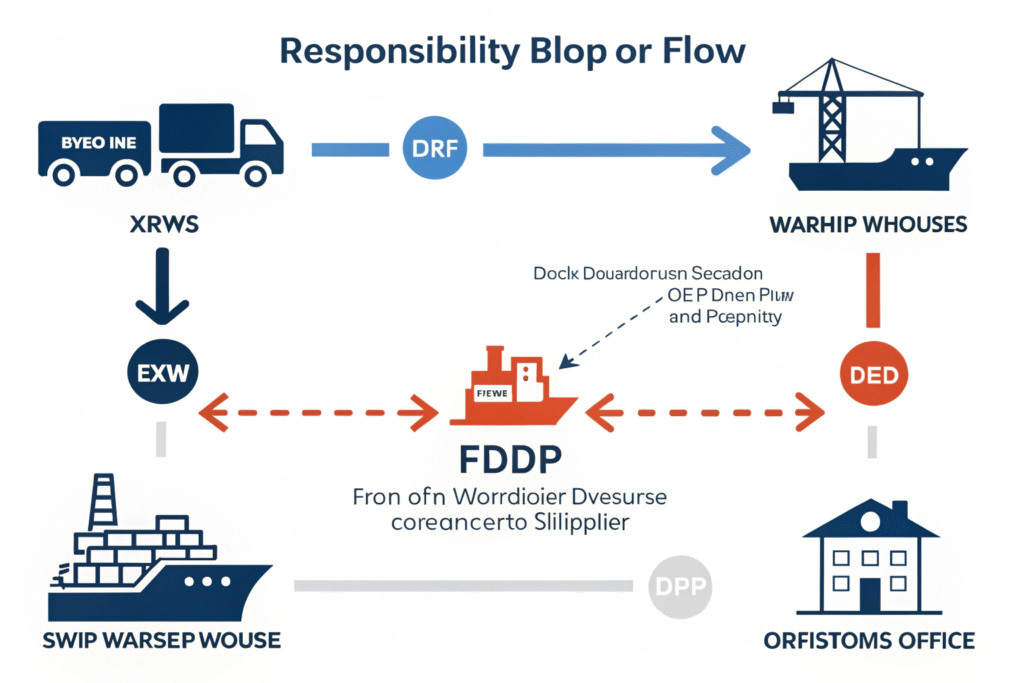
Who Handles Export & Import Procedures?
With EXW, the buyer arranges everything from pickup to final delivery, including China export clearance. FOB, by contrast, means the seller delivers the goods to a port and clears them for export—then the buyer takes over. DDP, as described by Incoterms ICC, means the seller handles the entire journey, including destination import clearance and duties.
Who Bears the Risk in Transit?
In EXW, you—the buyer—bear the most risk. If something goes wrong on the way to the port or during customs in China, it’s on you. FOB reduces this risk because it hands off responsibility after loading. DDP minimizes your risk entirely, but the service must be reliable. At GeeseCargo, we take on this full-chain responsibility under DDP, giving our clients complete peace of mind.
When Should You Choose EXW in 2025?
EXW offers the most autonomy—and the most risk. While appealing due to its low upfront cost, EXW requires buyers to know Chinese logistics, export rules, and have strong contacts with forwarders and brokers.
EXW is suitable only if you have extensive logistics experience in China and want full control over pickup, customs, and international shipping. Otherwise, it exposes your supply chain to inefficiencies and penalties.
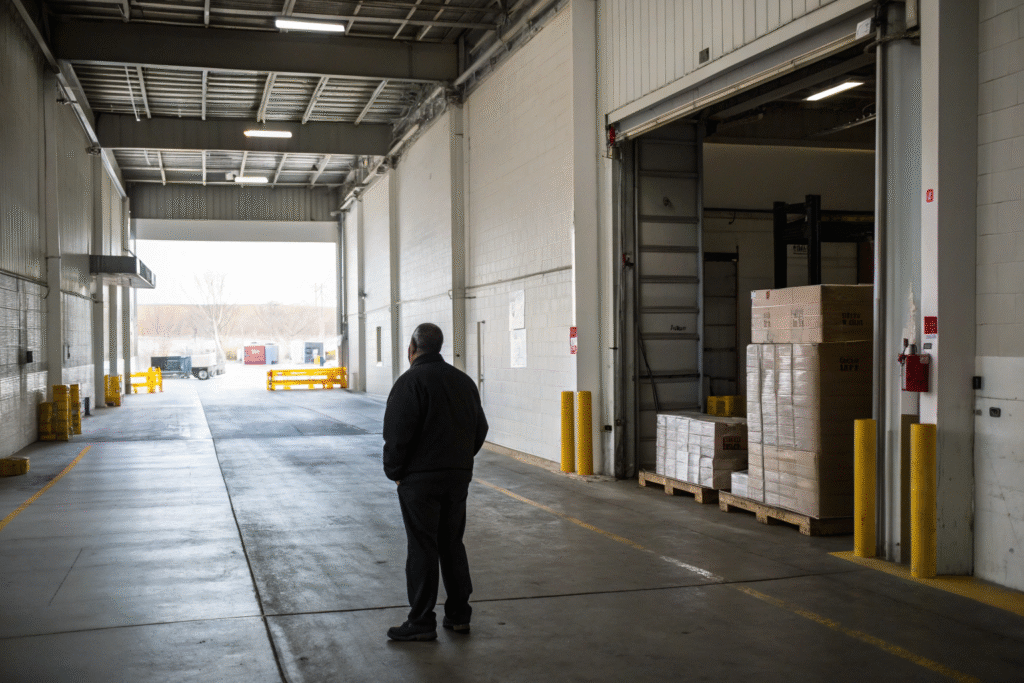
What Can Go Wrong Under EXW?
If your forwarder fails to clear goods at the port, you could face delays, export violations, or even detainment by Chinese customs. Also, many small Chinese factories may not label or prepare goods according to international shipping standards under EXW.
How Can You Mitigate EXW Risks?
If you still choose EXW, partner with a freight forwarder like GeeseCargo that can take over from the factory floor, manage documents, provide door pickup, and ensure customs compliance. We often convert EXW shipments into FOB by organizing inland transport and export clearance.
Is FOB the Best All-Rounder for Most Buyers?
FOB remains the most widely used Incoterm for medium-to-large volume shipments from China. It splits responsibilities fairly and allows buyers to control freight forwarders and shipment timing.
FOB is the most balanced Incoterm for buyers who want moderate control over freight, transparent pricing, and reduced exposure to port-level complications.
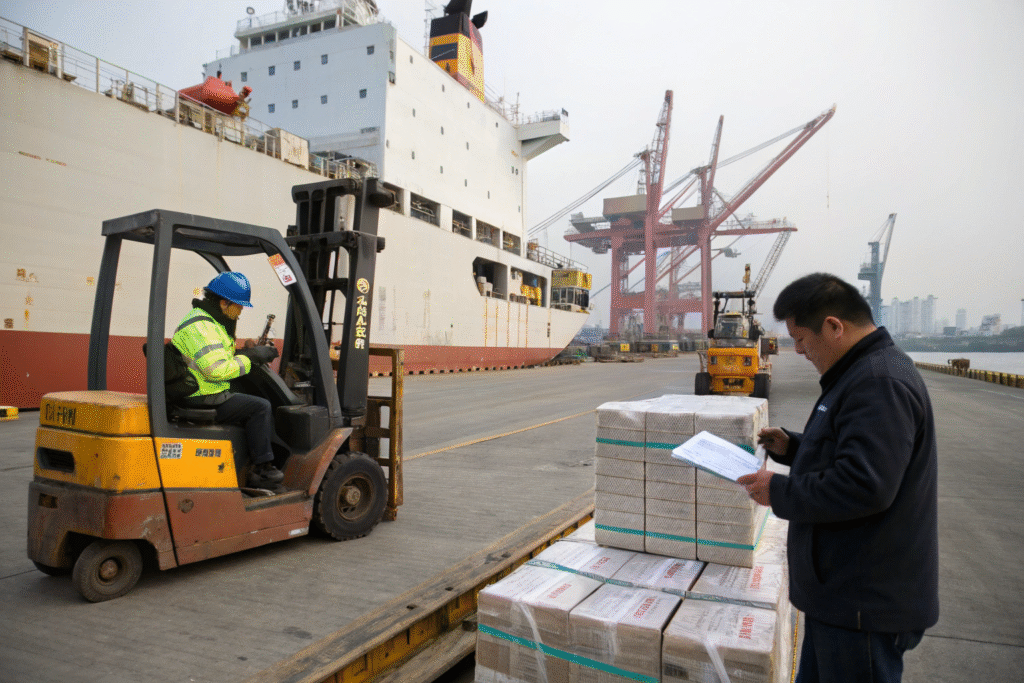
Why Is FOB Popular Among Apparel Importers?
With FOB, the factory delivers goods to a nominated port (like Ningbo or Shenzhen), and clears export customs. From there, your own forwarder books space, files import paperwork, and ensures delivery. This lets you compare forwarder quotes and optimize timing—a big advantage for seasonal importers.
What Are the Pitfalls of FOB?
Under FOB, you still need to manage US customs clearance and delivery to your warehouse. If you’re importing under tight schedules or lack a domestic broker, delays can cause extra demurrage fees. That’s why we offer bundled services combining FOB booking with destination clearance in the U.S.
Is DDP the Easiest—but Most Expensive—Option?
DDP gives you the least responsibility and the most simplicity. Everything is done for you—from the factory gate in China to your warehouse in the U.S., including all customs clearance and duties.
DDP is perfect for buyers who value predictability, lack import compliance experience, or want a one-invoice solution. But it often includes hidden costs if the provider isn’t transparent.
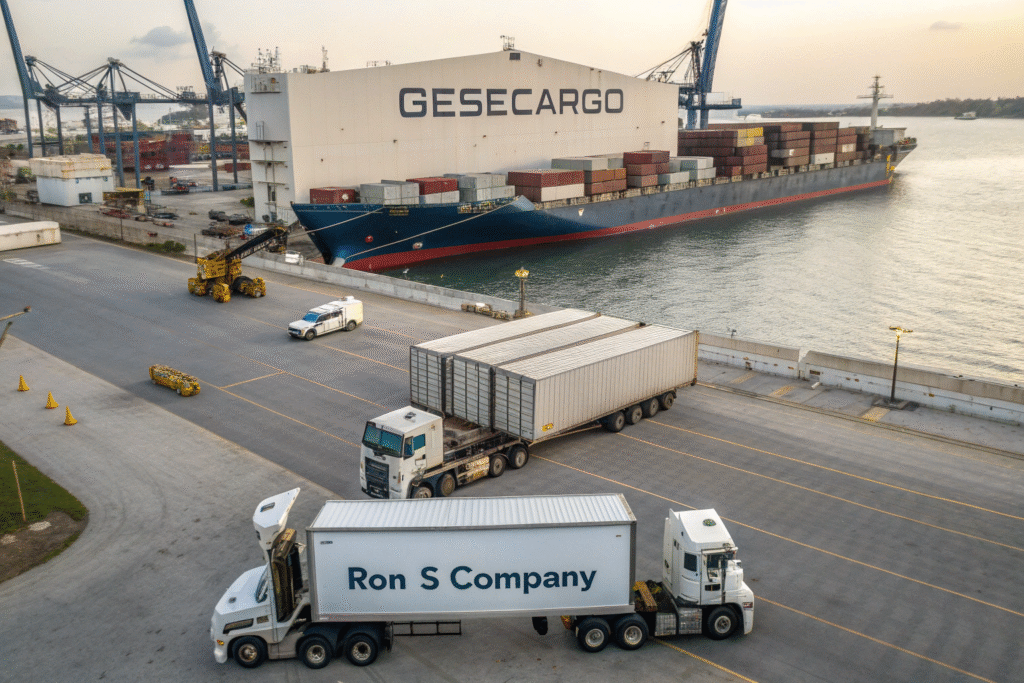
What Makes DDP a Premium Service?
Under DDP (Delivered Duty Paid), the seller or forwarder handles taxes, port fees, customs, and even last-mile delivery. This is ideal for small teams or first-time importers. However, not all sellers offer real DDP—they sometimes skip import taxes and label them as “DDU,” causing issues on arrival.
How Does GeeseCargo Handle DDP?
We provide true DDP with legally cleared U.S. import documentation, and our U.S. delivery network ensures your goods reach warehouses from California to New York. You’ll see all charges—duties, fuel, service—upfront, so there are no surprises. We even include automated tracking across every milestone.
What Are the 2025 Cost and Risk Trade-Offs for Each Incoterm?
Choosing the right Incoterm is a budgeting decision as much as a logistics one. Let’s compare their trade-offs in real-world terms.
In 2025, DDP may cost more upfront but saves in hidden delays. EXW appears cheapest but can explode in cost if issues arise. FOB offers balance for experienced buyers with freight teams.
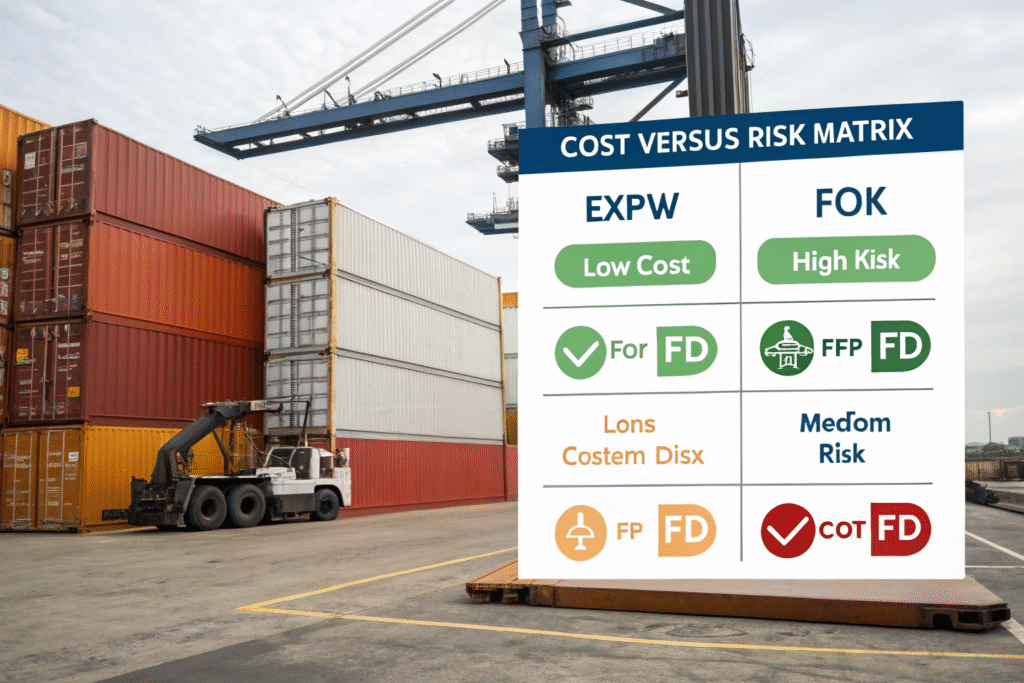
How Do Incoterms Affect Your Bottom Line?
| Incoterm | Who Pays Duties? | Avg. Risk Level | Avg. Cost per CBM (to U.S.) |
|---|---|---|---|
| EXW | Buyer | High | $65–$85 |
| FOB | Buyer | Medium | $70–$90 |
| DDP | Seller/Forwarder | Low | $90–$115 |
As you can see, you’re paying for peace of mind with DDP. But if you’re importing high-margin goods and tight turnaround is critical, that premium is often worth it.
What If You're Working With Multiple Suppliers?
If you consolidate shipments from different suppliers, combining EXW pickups and moving to FOB or DDP through a forwarder like us can reduce redundancy. We offer multi-supplier consolidation services with full visibility and cost breakdowns.
Conclusion
EXW, FOB, and DDP each offer distinct advantages—and risks—when shipping from China to the U.S. in 2025. For seasoned buyers who want control and transparency, FOB remains the go-to option. If you’re new or prefer all-in-one handling, DDP is a stress-free alternative. EXW works only when you have strong ground knowledge or a trusted partner like GeeseCargo.
In the end, your Incoterm choice should align with your logistics ability, budget flexibility, and risk appetite. We’ve helped hundreds of clients—just like Ron—choose the most strategic term, saving them time, money, and sleepless nights.
Let’s talk about your next shipment. We’ll help you choose what fits best—not just on paper, but in real-world trade.
